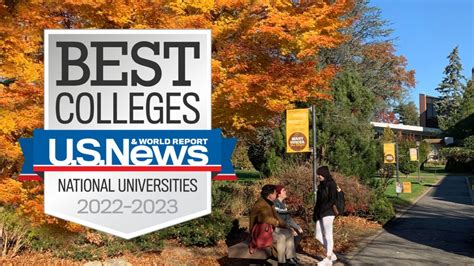Navigating the vast landscape of higher education can be daunting, especially when seeking a college that aligns with your literary aspirations. With countless institutions offering literature programs, the question arises: which colleges stand out as beacons of literary excellence? This guide aims to illuminate the path, providing insights into top-ranked colleges for literature majors and the essential factors to consider when choosing the right fit for your literary ambitions. Embark on this journey with us as we delve into the curriculum, faculty, and opportunities that define exceptional literature programs, empowering you to make an informed decision that will shape your literary future.
Top-Ranked Colleges for Literature Majors
When it comes to pursuing a college degree in literature, several institutions stand out as the best in the field. These colleges offer exceptional programs, world-renowned faculty, and ample opportunities for students to engage with literature in both theoretical and practical ways.
Here's a list of the top-ranked colleges for literature majors according to recent rankings:
| Rank | College/University |
|---|---|
| 1 | Yale University |
| 2 | Harvard University |
| 3 | Princeton University |
Choosing the Right College for Your Literary Ambitions
Selecting the right college for your literary ambitions involves considering several factors. It's essential to research the program's curriculum, faculty expertise, and the overall fit of the college with your academic and career goals.
Here are some questions to ask yourself:
* Does the college offer a strong foundation in literary theory and analysis?
* Are there opportunities for creative writing workshops and mentorship?
* What are the career paths of past graduates in the program?

Exploring the Curriculum and Faculty of Literature Programs
The curriculum of a literature program should provide a comprehensive overview of literary history, theory, and criticism. It should also offer a range of courses that allow students to explore specific periods, genres, and authors.
The faculty of the program also plays a crucial role. Look for experienced professors with research interests that align with your own literary passions. Their expertise and guidance can greatly enhance your learning experience.
The Importance of Literary Theory and Analysis
Literary theory and analysis are fundamental to the study of literature. They provide the tools to critically engage with texts, understand their underlying themes and structures, and interpret their significance.
A strong understanding of literary theory will equip you with the skills to analyze and interpret literary works, develop your own critical perspectives, and engage in informed discussions about literature.
Creative Writing Opportunities and Workshops
For aspiring writers, creative writing opportunities are essential. Look for colleges that offer creative writing workshops, where students can develop their writing skills under the guidance of experienced writers.
These workshops provide a supportive environment to experiment with different genres, receive feedback on your work, and hone your craft.
Literary Journals and Publications
Literary journals and publications offer students a platform to showcase their creative writing and engage with a wider audience. These journals are often run by students and provide valuable experience in editing, publishing, and promoting literary work.
Involvement in literary journals can also help you build connections with other writers and editors, and gain recognition for your work.
Career Paths for Literature Graduates
A degree in literature opens up a wide range of career paths. Graduates can pursue careers in academia, publishing, journalism, law, education, and many more fields.
The analytical and critical thinking skills developed through the study of literature are highly valued in various professions. Literature graduates are also well-suited for roles that require creativity, communication skills, and a deep understanding of human nature.
Notable Alumni and Their Contributions to Literature
Many notable alumni from top literature programs have gone on to make significant contributions to the field. These writers, critics, and scholars have shaped literary landscapes and influenced generations of readers.
Exploring the accomplishments of alumni can provide insights into the potential impact of a particular literature program and the opportunities it can open up for its students.
The Future of Literature in Higher Education
The future of literature in higher education is constantly evolving. With the rise of digital technologies and the changing demographics of students, colleges are adapting their literature programs to meet the needs of the 21st century.
Emerging trends include the integration of digital tools into literary analysis, the exploration of new genres and perspectives, and the focus on social justice and diversity in literature.
Emerging Trends and Innovations in Literary Studies
In recent years, literary studies have witnessed several emerging trends and innovations. One notable trend is the increasing focus on interdisciplinary approaches, where literature is studied in conjunction with other fields such as history, philosophy, and cultural studies.
Another trend is the growing emphasis on digital humanities, utilizing computational methods to analyze and interpret literary texts. These innovations are reshaping the field of literature and creating new opportunities for research and scholarship.
Conclusion
Choosing the right college for your literature aspirations is a significant decision. By considering the factors discussed in this guide, you can make an informed choice that aligns with your academic goals and career ambitions. With its rich curriculum, experienced faculty, and ample opportunities for exploration and creativity, a top-ranked college for literature can provide the foundation for a fulfilling and successful career in the field.
Closing Word
The study of literature is a transformative experience that enriches our understanding of ourselves, our cultures, and the human condition. Whether you aspire to become a writer, a scholar, or simply a more informed and engaged reader, a college degree in literature can open doors to a world of possibilities. Embrace the journey of literary discovery and let the power of words ignite your imagination.



